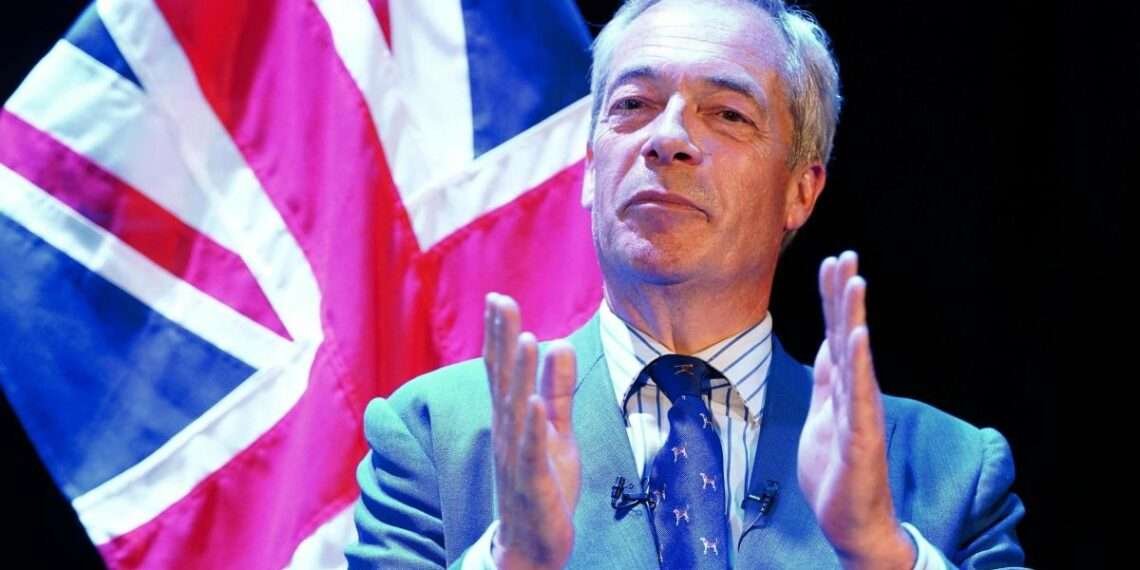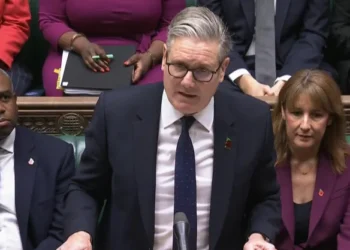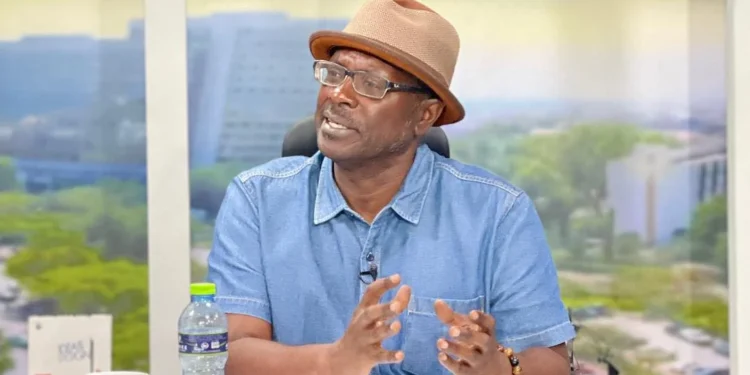In a significant setback for Prime Minister Rishi Sunak, a major new survey has revealed that voters now favor Nigel Farage over any Conservative leader as the preferred leader of the opposition to Labour.
The survey, conducted by Redfield and Wilton presents a fresh challenge for Sunak and the Conservative Party.
The survey, which sampled 2,000 voters on June 18, showed that 33 percent of respondents preferred Farage as the leader of the opposition, compared to 29 percent who favored whoever leads the Conservatives.
This sentiment was echoed among 2019 Conservative voters, with 40 percent supporting Farage and 39 percent backing the next Conservative leader.
Adding to the controversy, 50 percent of respondents believed it was wrong to exclude Farage from the televised leaders’ debate.
This sentiment highlights the growing public interest in Farage and his Reform Party, which appears to be gaining traction as an alternative to the traditional Conservative platform.
This polling data comes amid a heated debate over the Conservative Party’s latest social media campaign.
Launched this morning, the campaign depicts Labour as welcoming illegal migrants with open arms, a narrative that Farage has sharply criticized.
He accused the Tories of being “liars and cheats” following months of failed attempts to stop the influx of small boats across the Channel.
Double Trouble For Sunak
Further compounding the Conservative Party’s woes, polling expert Professor Sir John Curtice suggested that recent polls indicate Sunak is steering his party towards an unprecedented electoral defeat.

Curtice noted that one of the MRP polls projected the Conservatives winning only 53 seats, potentially marking Sunak as the first sitting prime minister to lose his seat in election history.
Despite these troubling signs for the Conservatives, public opinion on Farage’s potential to become leader of the opposition remains divided.
While 39 percent support the idea, 32 percent oppose it, with the support for Farage having increased by seven points over the past two weeks.
Nonetheless, 41 percent of voters still consider it implausible for Farage to assume this role post-general election, compared to 37 percent who believe it is possible.
In a broader comparison of political leaders, Labour leader Sir Keir Starmer emerges as the most favorable in various categories.
Pluralities of Britons believe Starmer best embodies 11 out of 15 listed characteristics, such as representing change (40 percent), advocating for the underprivileged (39 percent), and fixing the NHS (38 percent).
Farage, on the other hand, is seen by 34 percent as someone who “tells it like it is” and by 30 percent as “charismatic.”
Rishi Sunak’s standing is notably weaker. He comes second, with 19 percent, on the characteristic of “can build a strong economy,” but otherwise places third behind Starmer and Farage in most other categories.
This series of polls and public opinion data suggest a significant shift in the political landscape.
Farage’s rising popularity and the declining support for the Conservative Party indicate a potential upheaval in UK politics.
Farage himself seems to sense this change, stating, “Something is happening,” alluding to what he believes could be a political revolution.
With the next general election on the horizon, these developments signal a difficult period for Sunak and the Conservative Party.
As Farage’s Reform Party gains momentum, the traditional political balance in the UK may be poised for a dramatic shift.
The coming months will be crucial for Sunak as he attempts to regain voter confidence and stave off what could be a historic defeat for the Conservative Party.
READ ALSO: NPP Poised For Victory In Pusiga























